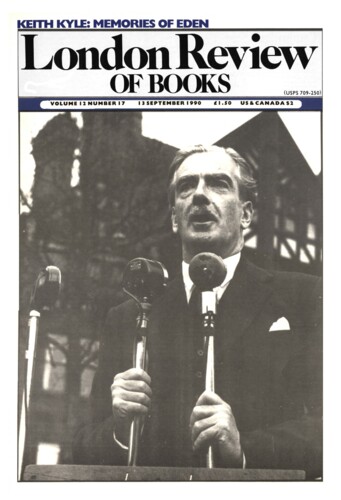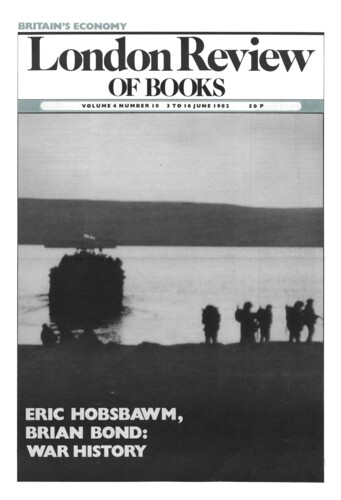Uganda’s New Men
Victoria Brittain, 13 September 1990
‘Mustafa Adrissi, Idi Amin’s Vice-President, recently appeared before the Human Rights Commission in Kampala. In response to a question about the constitutional violations over which he had presided in Amin’s violent years, he asked: ‘What is this constitution? We never heard of such a thing before.’ This is the man who, told that foreign exchange was a serious problem, said: ‘Just shoot the fellow.’




